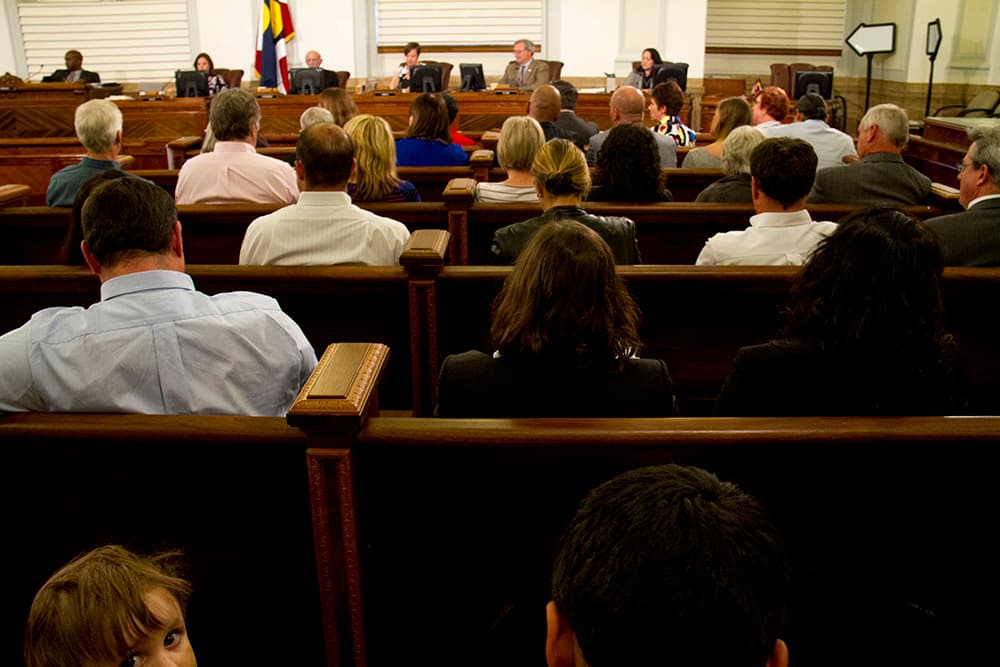The Denver City Council did away with a longtime practice Monday that's either a waste of time or an important staple of civic engagement, depending on who you ask.
Every legislative meeting more or less begins with a monotone murmur that lasts several minutes. It's the secretary reading, with seemingly unbroken breath, a stack of resolutions -- official actions by elected officials. (It sounds to me like a bar mitzvah reading. I can't track what's being said.)
The resolutions are often hefty contracts -- a $48 million agreement for airport needs here, $10 million worth of solar power there -- that the council approves. They're passed in public committee meetings, which are broadcast online and on television.
But if you don't see those meetings or read agendas and minutes online, the legislative meeting is the only other place they're uttered. Zapping them from the aural record did not sit well with Councilman Paul López, Councilman Kevin Flynn and Councilwoman Debbie Ortega, who voted against a package of procedural rule changes Monday.
"I understand that our meetings go late and as a council member for 11 years, I know that on Monday nights, I'm here," López said. "And sometimes those Monday nights have gone into Tuesday mornings. But that's just the business of the city. That's our job."
The resolutions took about four minutes and 20 seconds Monday night, which is probably about average.
Flynn was concerned about the precedent set by Monday's vote.
"I understand it's (resolutions are) printed on the agenda, you can see it online, but I think in today's climate it's the wrong time to draw the curtain on transparency," Flynn said, adding that it's a slippery slope that could result in glossing over more serious business.
City Council President Jolon Clark, the youngest member of the group, said the process was "antiquated" -- that it doesn't truly bolster civic engagement the way digital technology does.
In other words, reading the resolution titles is leftover from a time when town criers still yelled the news at people.
"For me personally, it's not something that I see as bringing a lot of extra value to what we're doing," Clark said. "I think it's more traditional and it hearkens from a day when reading the resolutions provided a service that we provide in other ways today."
The new rules also feature more lenient public speaking guidelines and limits on public proclamations, which are symbolic stances taken by the legislative body.













